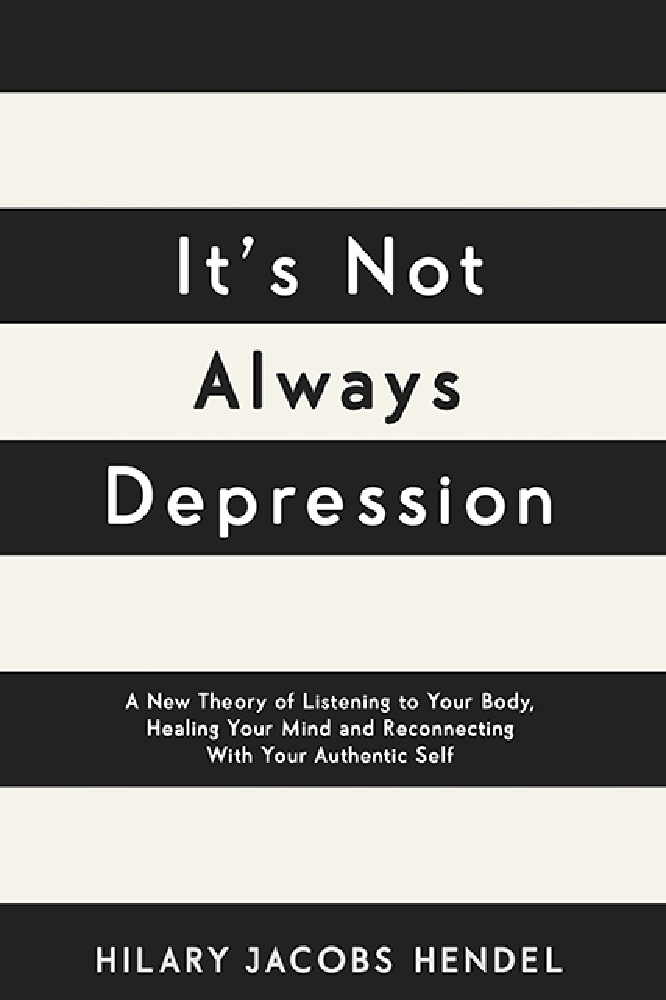By Hilary Jacobs Hendel

Hilary Jacobs Hendel
Tash was a busy woman engaged in building her career as a writer. She also valued having a large network of friends. In fact, having lots of friend was extremely important to Tash such that when felt out of touch or disconnected from any friend, her anxiety skyrocketed. I asked Tash what kind of things made her feel disconnected. The first thing Tash mentioned was when she thought about declining an invitation to go out. Tash felt obligated to accept each and every invitation she received. Whether a friend asked her for a quick tea or she was invited on a weekend trip, Tasha felt compelled to say yes even if she was tired, worn out, or just preferred to spend a quiet evening at home alone. Tasha couldn’t say no without feeling terrible upset and scared. She didn’t like feeling this way.
Being able to say no is an important skill for wellness. Saying no when you’re asked to do something you can’t or don’t want to do is what setting healthy limits and boundaries are all about. Whether it’s about not wanting to have dinner with your friend because you’re too tired, not wanting to have sex on a first date, or not wanting to split a restaurant bill equally when you have no money and drank considerably less than everyone else, learning to saying no is good for mental health and for your relationships.
Tash and I explored her fear of saying no to a social invitation. “I am afraid I will be forgotten or that if I say no, I won’t be asked again. Maybe my friend would be insulted. Basically, I am afraid to upset my friends because they may drop me,” she said.
Saying no is hard for most people. It makes us feel guilty, brings up fears of how another will respond, can make us feel ashamed that we don’t have more to give. These are natural feelings that need to be validated and tended to. But then we still must say no to avoid getting worn out, or worse, resenting the very friendships we cherish.
I told Tash, “Saying yes when you want to say no will eventually cause you to resent your friends or get depressed. You’ll be exhausted from putting others needs before yourself. I think there is a better way. You can express your concerns to your friends to help you feel better and learn to tolerate the guilt and fear saying no brings up. After practicing saying no again and again, seeing there are no dire consequences, and learning you can handle with good communication whatever consequences arise, you will eventually make a new normal for yourself. You’ll be able to say no and not feel as anxious.”
I suggested to Tash she turn down the next unwanted invitation. I suggested she say no but also communicate her desire to be asked again. For example, “I am so delighted to asked me for dinner and I so want to see you but I had a challenging work week this week and I just need a night to recuperate. Might we get together next week?”
Never underestimate the power of language and tone of voice. When I say no, particularly to someone I care about, I make it a point to communicate in a caring tone that I understand their need. “I know you hate going to parties by yourself. I truly get that. And, I am just so tired that I really need to rest tonight.”
In each one of these examples, I convey my understanding. I try not to sound defensive or angry or to blame them for asking. I use "I" statements, conveying that I own that I cannot do what they are asking. People are entitled to their feelings upon hearing no - including anger and sadness. It is up to us to learn to tolerate our feelings and the feelings of others all the while staying connected and communicating authentically.

To learn more about how to tolerate emotions to feel better read, “It’s Not Always Depression: A New Theory of Listening to Your Body, Discovering Core Emotions & Reconnecting with Your Authentic Self” (Penguin UK).
Tagged in depression

